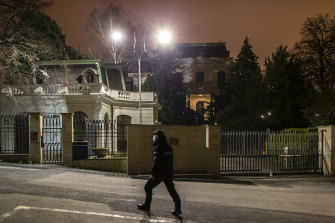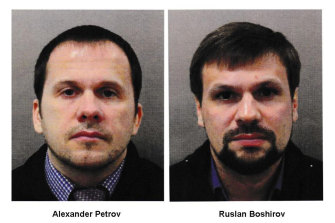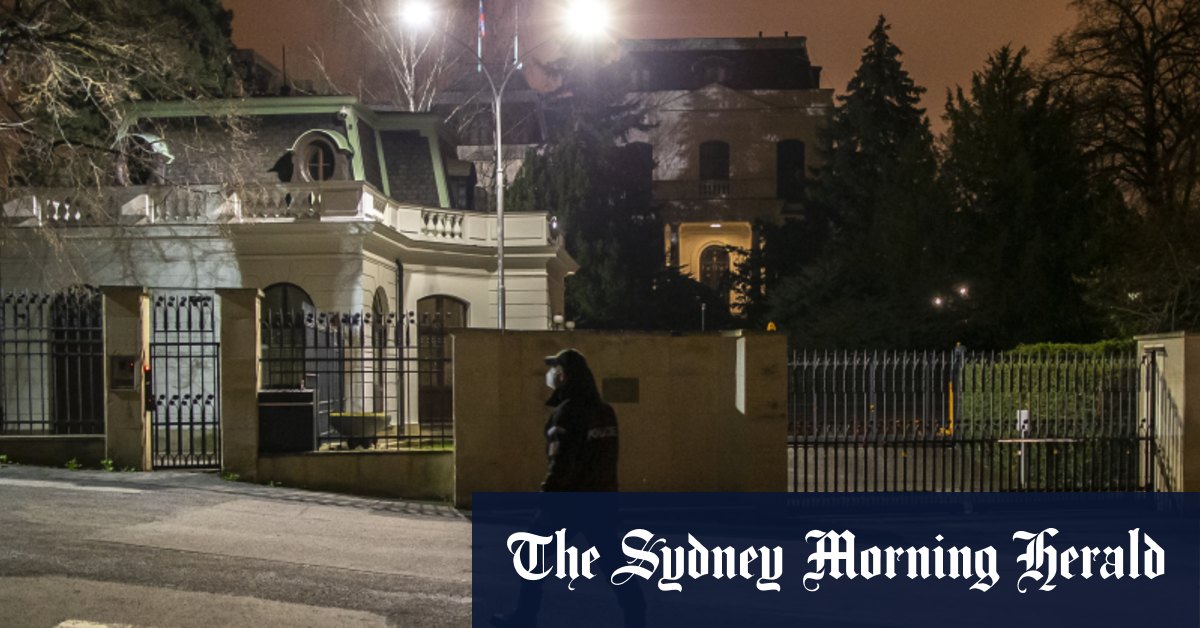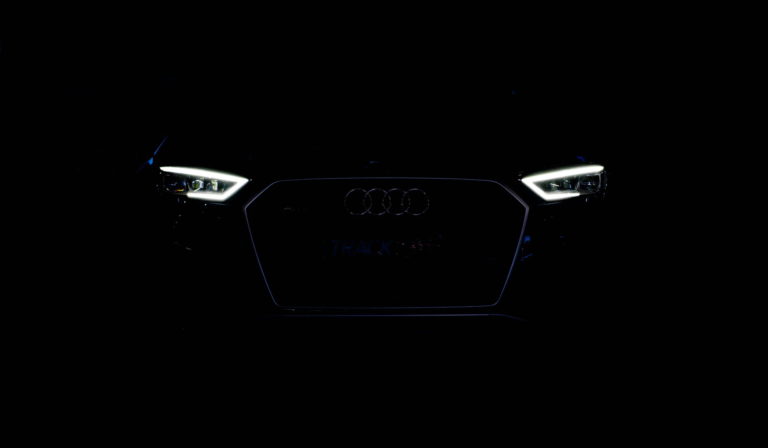Czechs blame notorious Russian spies for 2014 attack on munitions depot
The Czech Republic has blamed a series of mysterious 2014 explosions at Czech ammunition depots on an elite unit of Russia’s military intelligence service — a group that Britain has linked to a 2018 attack with a nerve agent on a former Russian spy in Salisbury, England.
Prime Minister Andrej Babis said at a Prague news conference on Saturday (Sunday AEST) that his government would respond by expelling 18 Russian diplomats, whom it had identified as spies. He said there was “clear evidence,” assembled by the Czech intelligence and security services, showing “reasonable suspicion” that the Russian group, known as Unit 29155, had been involved in the blasts in late 2014, which killed two Czechs.

A policeman watches in front of The Russian Federation embassy building on April 17, 2021 in Prague, Czech Republic.Credit:Getty Images
The announcement underscored the breadth of Russia’s efforts to expand its influence and pursue aggressive actions around the world, including military-style operations, assassinations and cyberattacks.
The elite Russian unit has operated for at least a decade, focusing on subversion, sabotage and assassination beyond Russia’s borders. It first came to light after the March 2018 attack in Salisbury, England, on a turncoat Russian ex-spy, Sergei Skripal, and his daughter, Yulia, using the nerve agent Novichok. Both fell gravely ill but recovered.
Britain blamed the Salisbury attack on Russian military intelligence, known as the GRU, and identified two of its agents, who travelled under fake names as Alexander Petrov and Ruslan Boshirov, as the prime suspects.
As the prime minister spoke in Prague, the anti-organised-crime unit of the Czech national police issued its own statement, saying that two Russian men using the same names were wanted in connection with an unspecified “serious crime” and were known to have been in the Czech Republic — including the Zlin region, where the ammunition depots exploded — from October 11 to October 16, 2014, the date of the first blast.
The Czech police also released photographs of the two men, who looked like the men shown in photographs released in 2018 by Britain. The police said the men had used at least two different identities and asked anyone who had seen them or knew anything about their movements in the Czech Republic to call a hotline.

Alexander Petrov, left, and Ruslan Boshirov are now wanted over the attack on a Czech ammunition depot. Credit:AP
Babis, the prime minister, did not accuse the two Russians directly of involvement in the arms warehouse explosions, but he said there was “unequivocal evidence” that agents working for Russian military intelligence had been involved.





